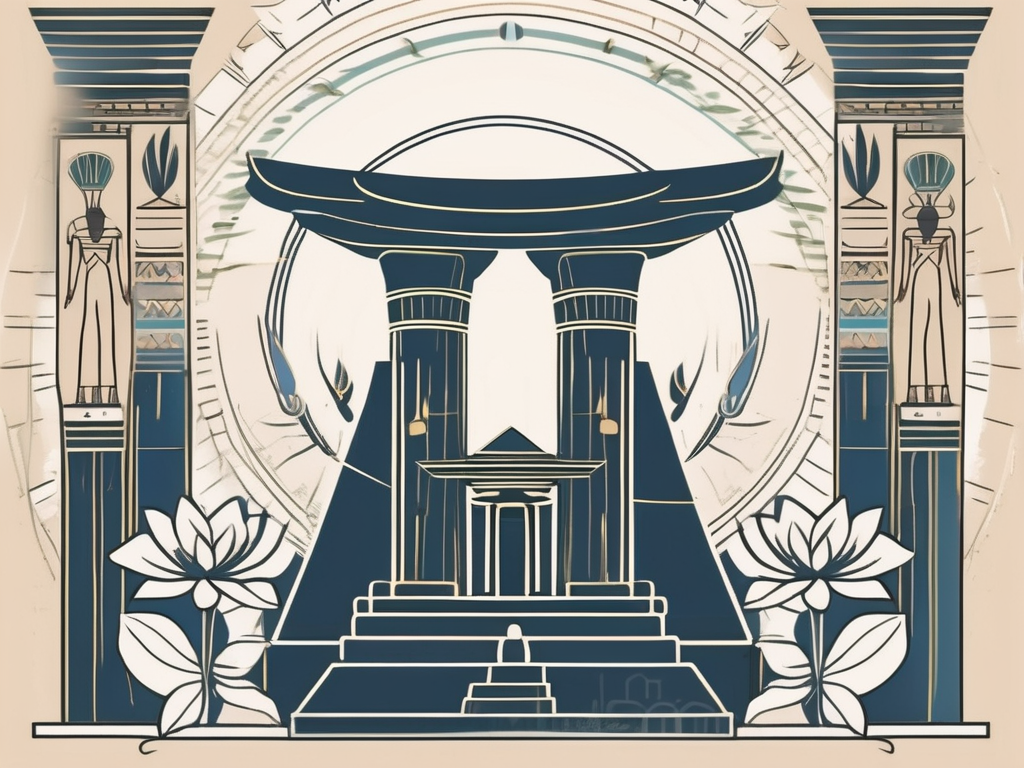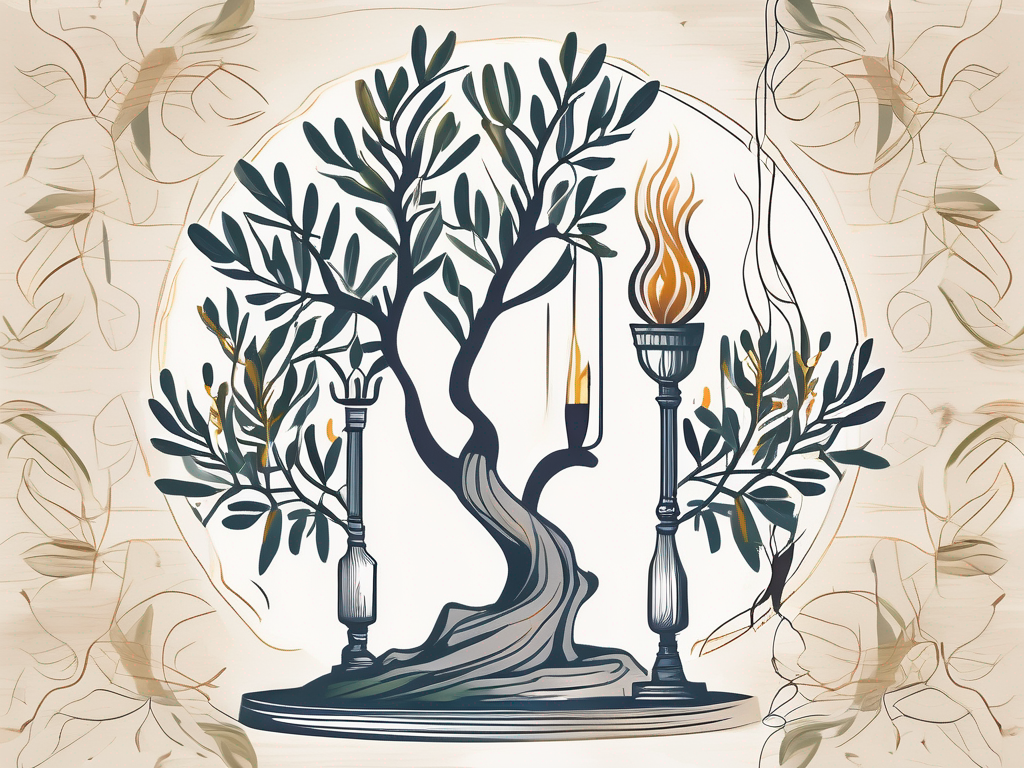Welcome to the fascinating world of ancient Egyptian culture, where gods and goddesses played a significant role in everyday life. In this article, we will take a deep dive into the mysteries surrounding the Egyptian Goddess of Fertility. Join us as we uncover the ancient secrets and explore the profound influence she had on the civilization that believed in her powers.
Understanding the Role of Fertility in Ancient Egyptian Culture
When we think about ancient civilizations, we often envision grand pyramids, mighty pharaohs, and mystical rituals. However, for the Egyptians, fertility was a fundamental aspect of their culture and society. The ability to reproduce and give life was highly valued, as it ensured the continuation of their civilization.
Ancient Egyptians believed that fertility was not only linked to the physical act of procreation but also played a crucial role in their agricultural practices. The abundance of the Nile River was an essential source of sustenance for the Egyptian people, and it was through fertility that they believed their crops would flourish and their lands would prosper.
Moreover, fertility was closely intertwined with the concept of rebirth and regeneration. The Egyptians believed in an afterlife, where they would continue their existence in a different realm. The ability to bear children was seen as a way to ensure the continuation of life, both in this world and the next.
The Importance of Fertility in Ancient Egyptian Society
In ancient Egyptian society, fertility held immense importance. It was not only a matter of individual pride but also a collective responsibility. The entire community celebrated the birth of a child, as it signified the growth and prosperity of the society as a whole.
Women, in particular, played a vital role in the cultivation of fertility. They were revered as the bearers of life and were considered to possess a special connection to the divine. The ability to conceive and give birth was seen as a sacred duty, and women were highly respected for their role in ensuring the continuation of the Egyptian civilization.
Furthermore, fertility rituals and ceremonies were an integral part of ancient Egyptian society. These rituals were performed to invoke the blessings of the gods and goddesses associated with fertility. The Egyptians believed that by appeasing these deities, they would ensure the fertility of their land, animals, and people.
Religious Beliefs Surrounding Fertility
When it came to matters of fertility, the Egyptian pantheon was populated by numerous gods and goddesses. However, one particular deity reigned supreme in this realm – the Egyptian Goddess of Fertility, known as Isis.
Isis was worshipped as the ultimate symbol of fertility and motherhood. She was believed to have the power to grant fertility to women and bless them with healthy children. Temples dedicated to Isis were centers of worship and pilgrimage, where women sought her divine intervention to conceive and ensure a successful pregnancy.
In addition to Isis, other deities associated with fertility included Hathor, the goddess of love and joy, and Min, the god of fertility and sexual potency. These gods and goddesses were revered and worshipped through elaborate rituals and offerings, with the hope of gaining their favor and blessings for fertility.
Ancient Egyptian art and literature also depicted scenes of fertility and childbirth, emphasizing the cultural significance of these themes. Paintings and sculptures showcased women with rounded bellies, symbolizing their status as expectant mothers and the embodiment of fertility.
In conclusion, fertility held a central role in ancient Egyptian culture and society. It was not only a biological process but also a spiritual and agricultural phenomenon. The Egyptians believed that through fertility, they could ensure the prosperity and continuity of their civilization, both in this world and the afterlife.
The Goddess of Fertility: An In-depth Look
The mythology surrounding the Egyptian Goddess of Fertility is rich and captivating. She was believed to be the mistress of creation and the bringer of new life. Her name varied throughout different periods and regions, but she was commonly known as Isis.
Isis, the Goddess of Fertility, held a significant place in the hearts and minds of the ancient Egyptians. She was revered as the epitome of femininity and the embodiment of motherhood. Her influence extended beyond the realms of mythology, as she was also worshipped as a protector and healer.
The Mythology of the Fertility Goddess
According to ancient texts, Isis played a pivotal role in the resurrection of her husband, Osiris, after he was murdered by his jealous brother, Set. Through her unwavering love and magical offerings, she was able to revive Osiris and conceive their son, Horus.
The tale of Isis and Osiris symbolized the eternal cycle of life, death, and rebirth, which was deeply ingrained in Egyptian mythology. It reflected the belief in the cyclical nature of existence, where death was not an end but a transition to another phase of being. Isis became a symbol of hope, fertility, and maternal love, providing an emotional anchor for the Egyptian people in times of joy and sorrow.
Isis was not only a powerful goddess but also a wise and resourceful one. In her quest to revive Osiris, she traveled far and wide, gathering knowledge and seeking the help of other deities. Her determination and resilience were admired by the ancient Egyptians, who saw her as an inspiration for overcoming adversity.
Symbolism Associated with the Fertility Goddess
The symbolism associated with the Goddess of Fertility was far-reaching and multifaceted. She was often depicted with a throne upon her head, representing her role as the queen of the gods. This symbolized her authority and power, as well as her connection to the divine.
Additionally, Isis was portrayed nursing her son Horus, emphasizing her nurturing and maternal nature. This image served as a reminder of her role as the protector and nurturer of all living beings. It represented her ability to provide sustenance and care, ensuring the well-being and growth of all those under her watchful eye.
Wings were another prominent symbol associated with the fertility goddess. These wings represented her ability to soar above earthly limitations and intervene in the lives of mortals. Furthermore, they symbolized the protective nature of the goddess, shielding her followers from harm and ensuring their prosperity.
Isis was also often depicted with a sistrum, a musical instrument associated with fertility and joy. The sound of the sistrum was believed to have the power to ward off evil spirits and bring about abundance and prosperity. It was a symbol of celebration and the harmonious balance between the divine and earthly realms.
As the Goddess of Fertility, Isis held a special place in the hearts of the ancient Egyptians. Her influence extended beyond the realms of mythology, as she was believed to be the source of all life and the protector of the natural world. Her legacy continues to inspire and captivate us, reminding us of the power and beauty of creation.
The Worship and Rituals of the Fertility Goddess
Temples dedicated to the worship of the Fertility Goddess were scattered throughout ancient Egypt. These sacred spaces served as centers of religious and social activities, where individuals sought her divine blessings for fertility, family, and abundance.
Temples and Sacred Spaces
Inside these temples, rituals and offerings were conducted to honor the Fertility Goddess. Devotees would bring offerings of flowers, food, and incense, believing that their generosity would be met with favor, increasing their chances of conceiving or ensuring a healthy pregnancy.
Additionally, fertility rituals were held regularly to invoke the goddess’s blessings upon the people. These rituals often involved music, dance, and prayer, creating an atmosphere of celebration and spiritual connection.
Rituals and Ceremonies
One of the most famous ceremonies associated with the Fertility Goddess was the flooding of the Nile River. The annual flooding, known as the “Inundation,” was seen as a sign of the goddess’s favor and a promise of bountiful harvests.
During this time, people gathered along the riverbanks to witness the rising waters and participate in rituals to ensure a prosperous year. These ceremonies included offerings of fruit, prayers for fertility, and purification rituals, ensuring a close connection between the goddess, the people, and their agricultural livelihoods.
The Influence of the Fertility Goddess on Modern Culture
The ancient wisdom and beliefs surrounding the Egyptian Goddess of Fertility have left a lasting impact on modern culture. Her presence can be seen in various forms of literature, art, and contemporary beliefs and practices.
The Fertility Goddess in Modern Literature and Art
Throughout history, writers and artists have drawn inspiration from the rich mythology and iconography of the Fertility Goddess. Her timeless archetype has been transformed into characters, themes, and symbols, captivating and inspiring audiences across the globe.
From novels to paintings, her image and legacy continue to evoke a sense of awe and reverence, reminding us of the eternal cycle of life and the power of creation.
The Fertility Goddess in Contemporary Beliefs and Practices
Even in modern times, the influence of the Fertility Goddess can be felt in various cultures and spiritual practices. Many individuals, regardless of their religious affiliations, turn to her for guidance and blessings when seeking to start a family or embrace the power of creation.
She has become a symbol of hope and inspiration for those facing challenges in conceiving, providing solace and support in their journey towards parenthood.
Unveiling Ancient Secrets
As we conclude our exploration of the Egyptian Goddess of Fertility, we cannot help but marvel at the profound impact she had on ancient Egyptian culture and continues to have on modern society.
Her significance went far beyond the physical act of procreation; she embodied the eternal cycle of life, symbolized hope and abundance, and nurtured the spiritual and emotional well-being of her worshippers.
Through her ancient secrets, we have been given a glimpse into a civilization that revered the powers of fertility. And as we reflect on the enduring legacy of the Fertility Goddess, we are reminded of the countless miracles and mysteries that await our discovery in the vast tapestry of human history.












